Biophysics Overview
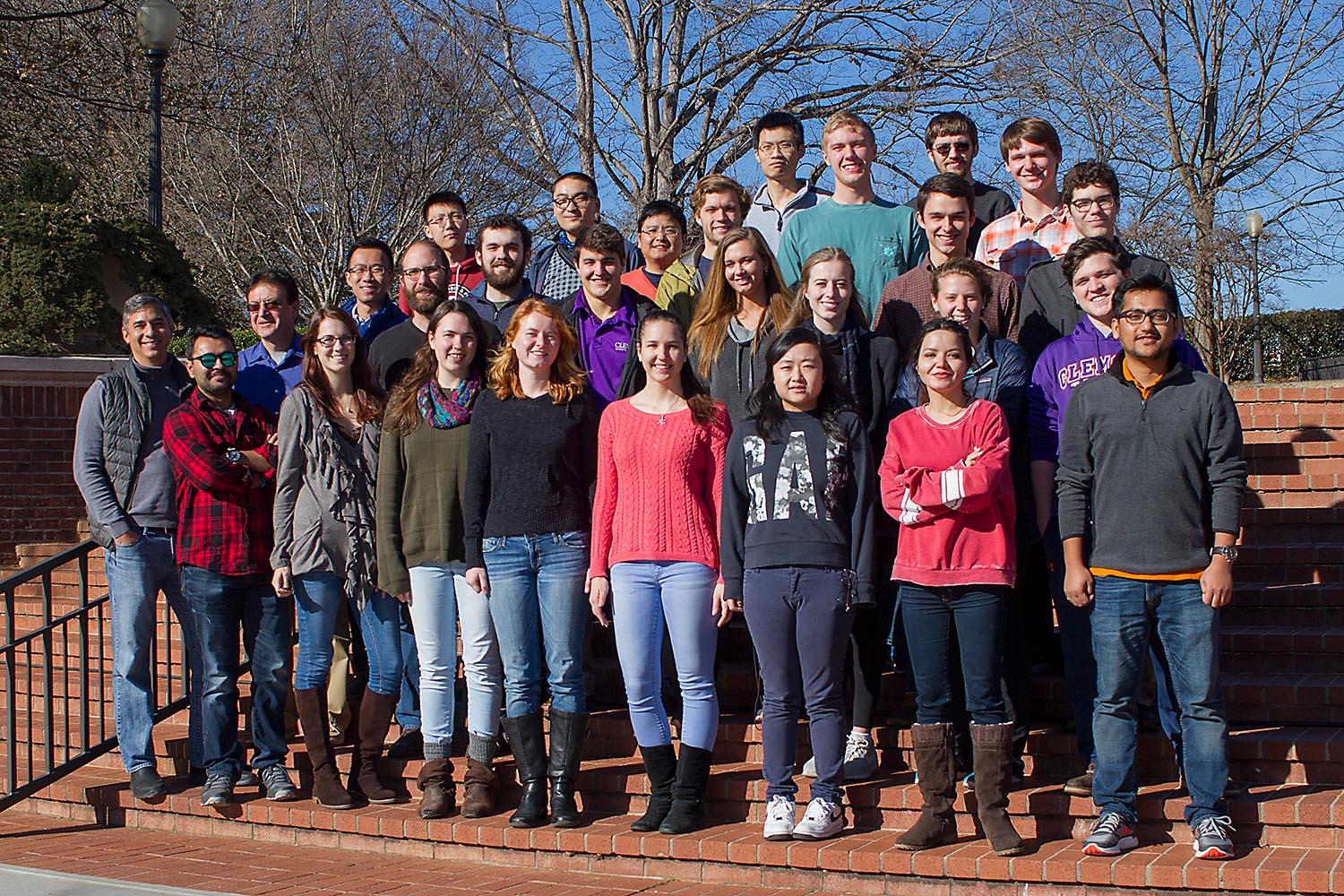 Biophysicists seek to apply the principles of physics and chemistry and the methods of mathematical analysis and computer modeling to pertinent questions in biology and medicine.
Biophysicists seek to apply the principles of physics and chemistry and the methods of mathematical analysis and computer modeling to pertinent questions in biology and medicine.
Biophysics is predominantly a molecular science, and much effort in the field is directed towards determining the structures and physical properties of specific biological molecules and the larger structures into which they assemble.
With the progress made in sequencing the human genome, these efforts are nowadays aimed toward large scale experimental and computational studies of complete metabolic networks.
The biophysics group in the Department of Physics and Astronomy at Clemson University is comprised of researchers with diverse interests spanning from computational theory to experimental biophysics and soft matter. The program includes several labs.
Biophysics Labs in the Department
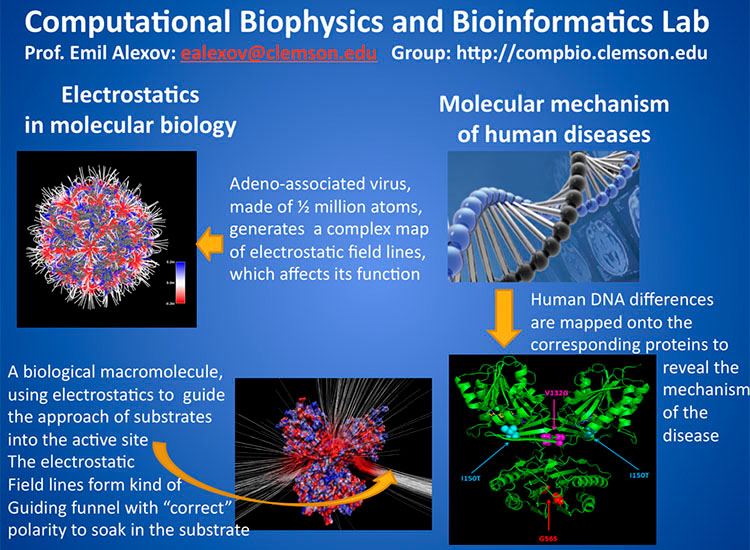
Computational Biophysics and Bioinformatics Laboratory
PI: Emil Alexov, Ph.D.
Computational Biophysics and Bioinformatics at Clemson University investigates putative protein-protein interactions and the structures of these complexes on a genome-scale, thus providing the necessary basics for structure-guided drug design.
Visit the Computational Biophysics and Bioinformatics Laboratory website.
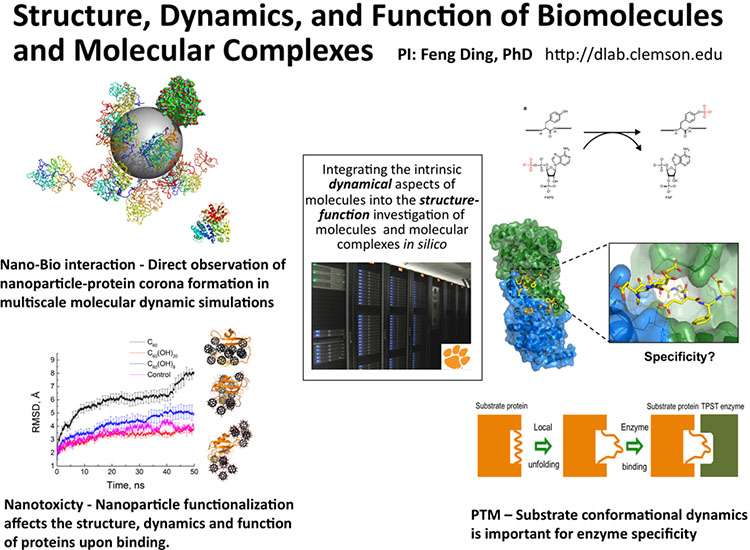
Structure, Dynamics and Function of Biomolecules Laboratory
PI: Feng Ding, P.D.
The Structure, Dynamics and Function of Biomolecules Laboratory focus on understanding the relationship between structure, dynamics, and function of biomolecules and molecular complexes, which can help better understand biology and subsequently find applications in biomedical research.
Visit the Structure, Dynamics and Function of Biomolecules Laboratory.
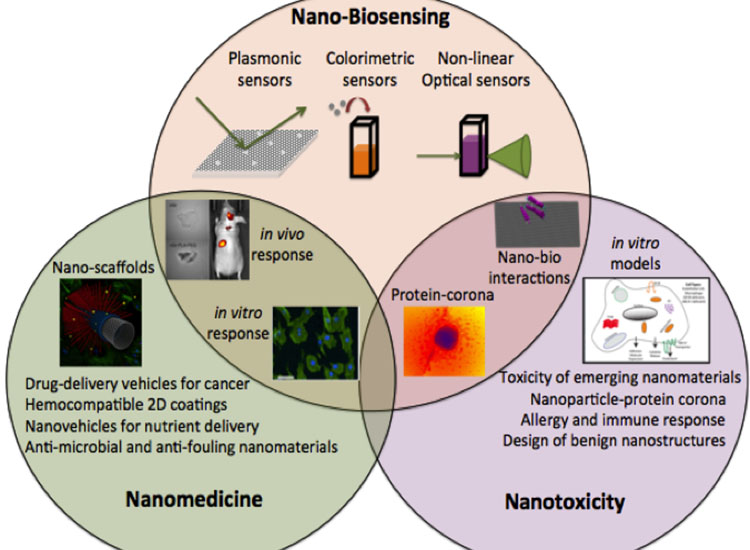
Nano-Bio Lab
PI: Ramakrishna Podila, Ph.D.
The research interests of the Nano-Bio Lab lie at the interface of physics, biology and nanoscience. This lab aims to seamlessly integrate the principles of condensed matter physics, optical spectroscopy and physiological chemistry to elucidate biophysics at the nanoscale.
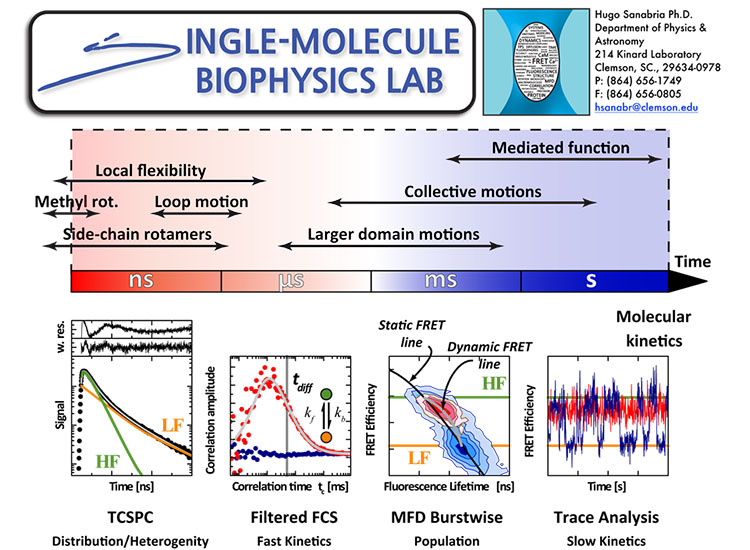
Single-Molecule Biophysics Laboratory
PI: Hugo Sanabria, Ph.D.
The experimental program combines various fluorescence tools at ensemble and single molecule to address the mechanisms of which enzyme, proteins and signaling molecules function, and to study the biophysical properties of biomolecules (e.g. signaling molecules involved in learning and memory, and those associated with neurodegenerative disease) from the nano to the macro scale. The goal is to understand how biomolecules interact, store and transfer information in order to determine the principles underlying biomolecular structure and dynamics and how they relate to their function.
